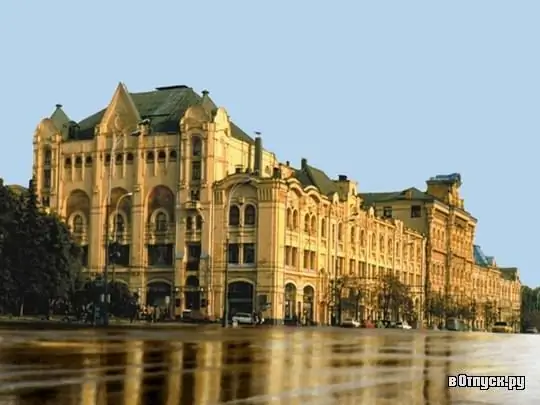
Description of the attraction
The Polytechnic Museum is located in the center of Moscow, on New Square. The museum was created thanks to the initiative of the members of the Society of Natural Science, Ethnography and Anthropology, immediately after the 1872 Polytechnic Exhibition. The exhibits of the exhibition formed the basis of the funds of the new museum. Members of this society, professors of Moscow University G. E. Shchurovsky and A. P. Bogdanov took an active part in the creation of the museum.
The Moscow City Duma allocated in 1871 a site for the construction of a museum in Lubyansky Proezd. Later, the building of the museum turned out to be on Lubyanka Square. This happened after the demolition of the building of the Imperial Society. In place of the demolished building, the northern part of the museum building was built.
The museum was opened in a temporary building in 1872. In 1877, the central part of the museum building was completed. The project was carried out by the architect Monighetti. N. A. Shokhin supervised the construction of the building. The southern wing of the Polytechnic Museum was built by the architect Shokhin in 1883, the right wing of the building was built in 1896, and the northern building was built in 1903-1907 according to the project of Makayev. The entire construction of the building of the Polytechnic Museum lasted about thirty years.
The Polytechnic Museum is one of the oldest science and technology museums in the world. Today it is the largest museum in Russia, which presents more than 190 thousand exhibits, 150 collections in various fields of scientific knowledge and technology. The expositions of the museum explain the principle of operation of various technical devices, tell about the history of technical inventions and inventors. The library of the Polytechnic Museum contains over 3 million books and publications.
Bunin, Burliuk and Mayakovsky performed in the Lecture Hall of the Polytechnic Museum. Disputes about the ways of cultural development raged. In 1918, Khlebnikov and Yesenin, Bely, Mariengof and Bryusov performed at the Lecture Hall. In the thirties, poetic traditions were continued by Zabolotsky, Bagritsky and Tvardovsky. During the "thaw" of the sixties, Voznesensky, Okudzhava, Rozhdestvensky and others performed at the Polytechnic.
World renowned scientists spoke at the Polytechnic Museum: Nobel laureate Mechnikov, academicians Fersman, Zelinsky, Vavilov. Here, in 1934, Niels Bohr gave a lecture "The structure of the atomic nucleus".
Nowadays, in the famous Lecture hall, scientific and educational and socio-political activities are in full swing. Large Auditorium Lecture hall is built like an amphitheater and can seat 520 spectators. It is here that all important, significant events for the Polytechnic Museum are held.
In 2011, lectures of the Skolkovo Open University are held at the Polytechnic Lecture Center. The Tsiolkovsky bookstore is open.






